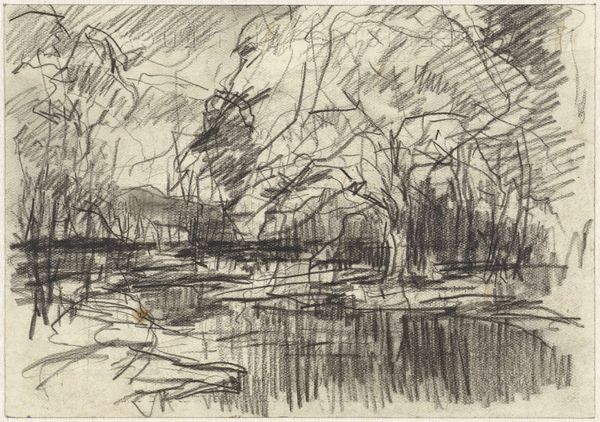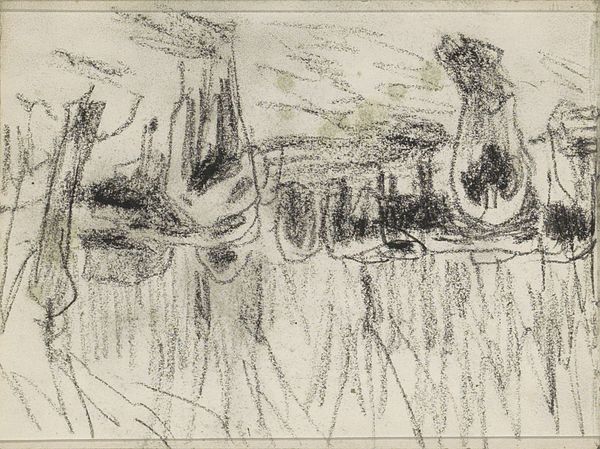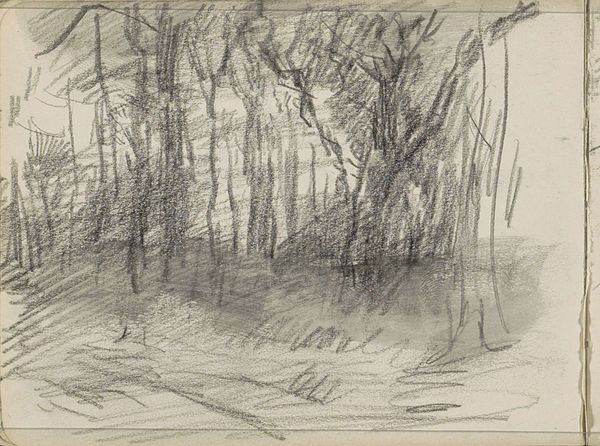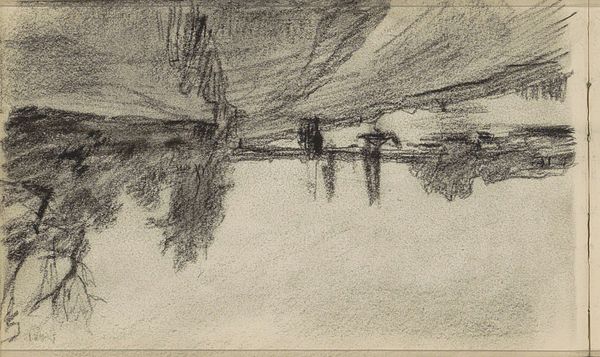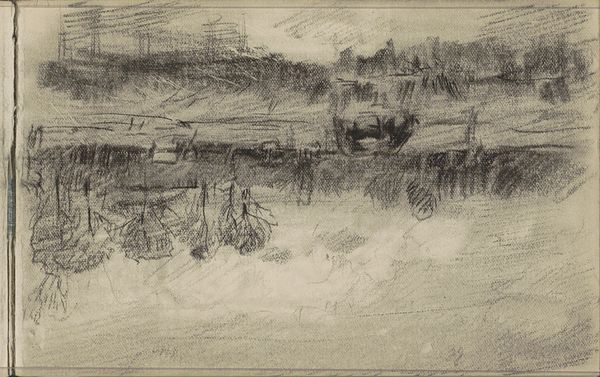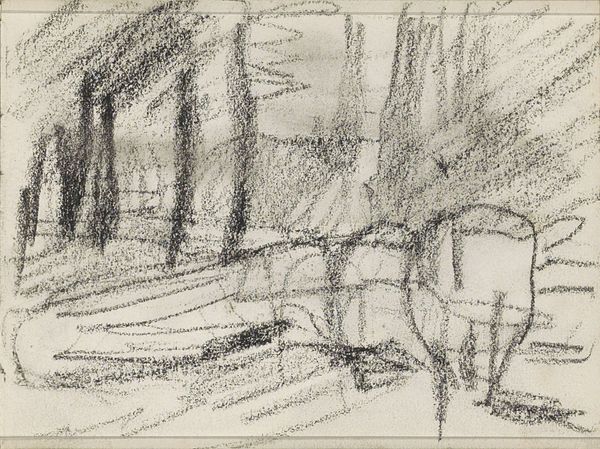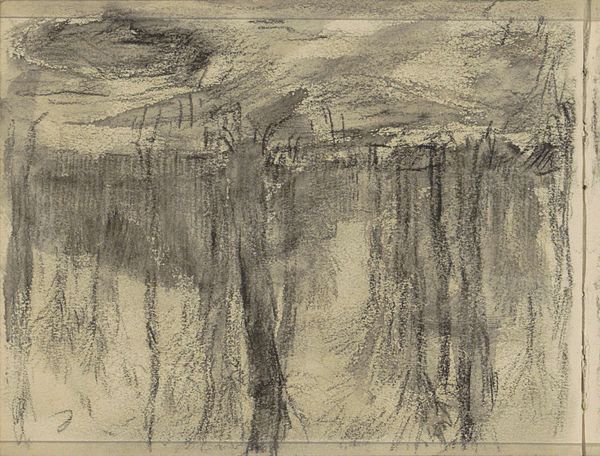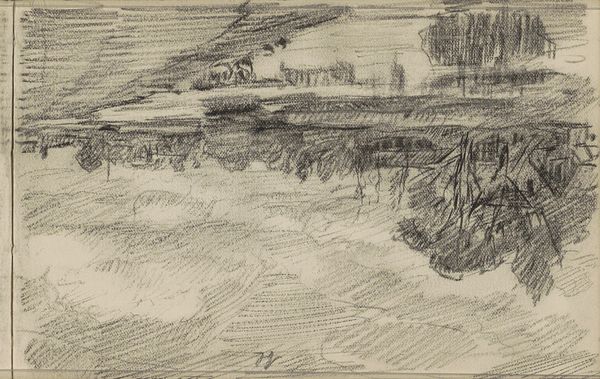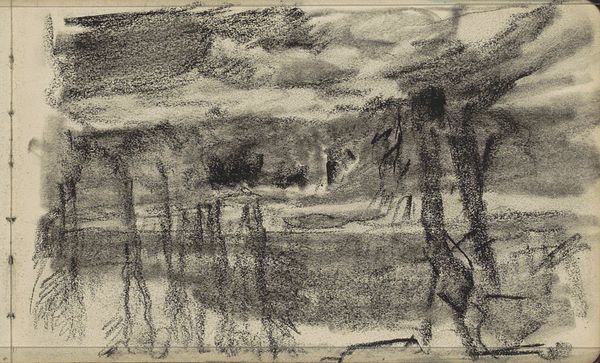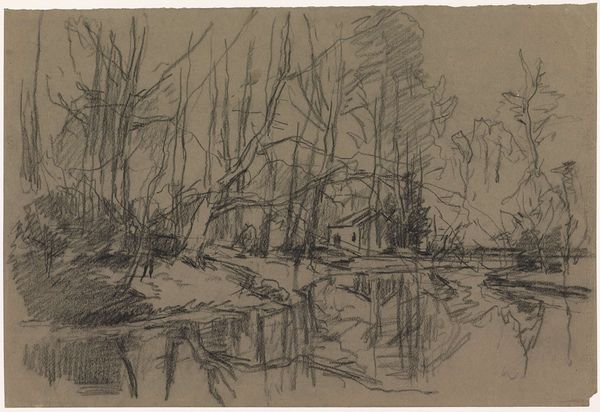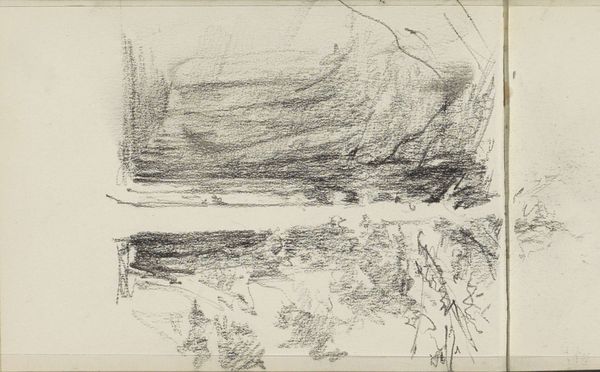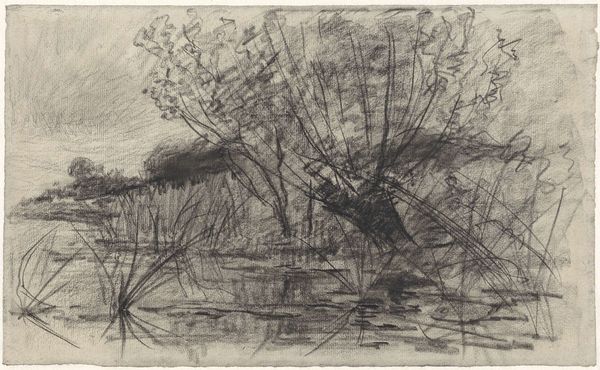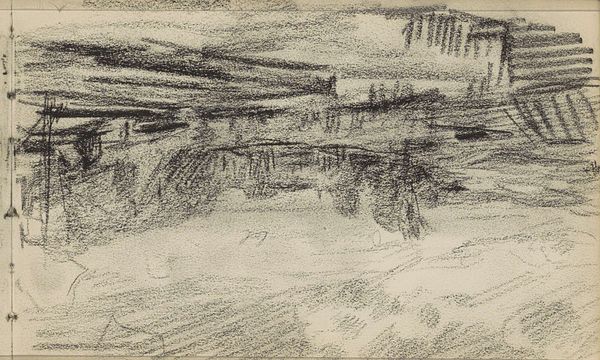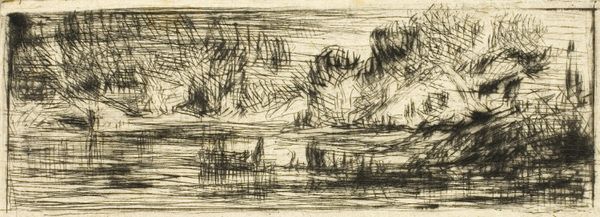
Copyright: Rijks Museum: Open Domain
Johan Antonie de Jonge rendered this landscape with buildings in charcoal on paper. De Jonge, who lived through times of significant social upheaval, may have been subtly influenced by the rapid industrialization of the Netherlands. This piece, while appearing as a simple landscape at first glance, provides a glimpse into the changing social landscape of the late 19th and early 20th centuries. The artist uses stark contrasts and shadowy lines to explore themes of transition and uncertainty. The buildings, sketched with an almost haunting quality, suggest the encroachment of urbanization on the natural world. De Jonge’s work reflects a growing awareness of the divide between rural and urban life, capturing the emotional weight of a society in flux. Consider how the artist uses line and form to evoke a sense of unease, hinting at the deeper socio-political anxieties of his time.
Comments
No comments
Be the first to comment and join the conversation on the ultimate creative platform.
